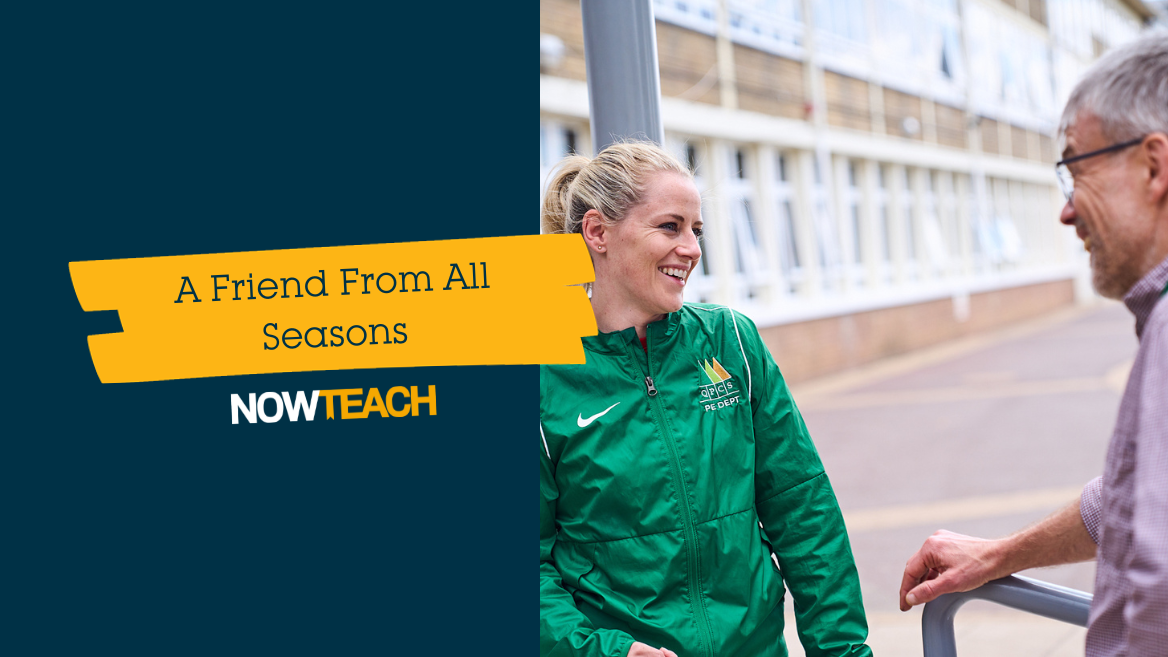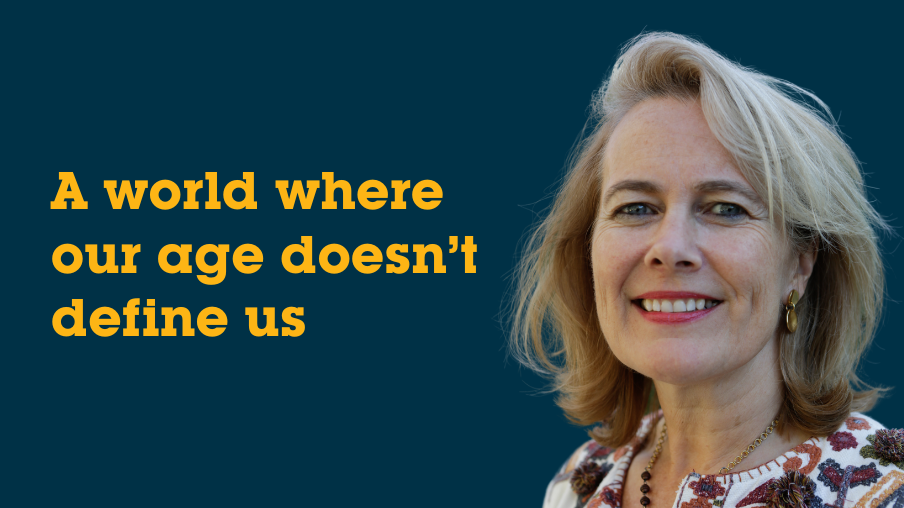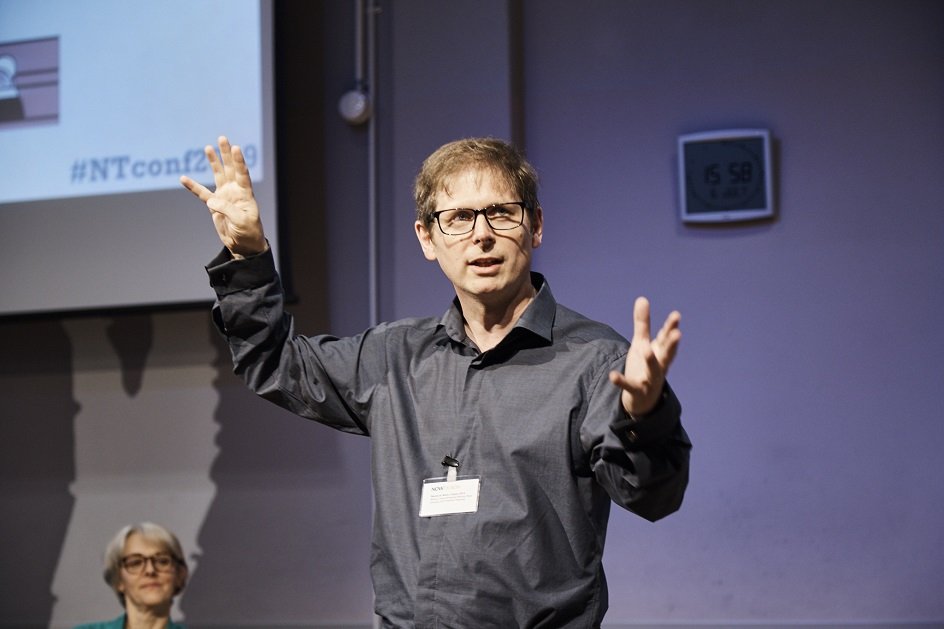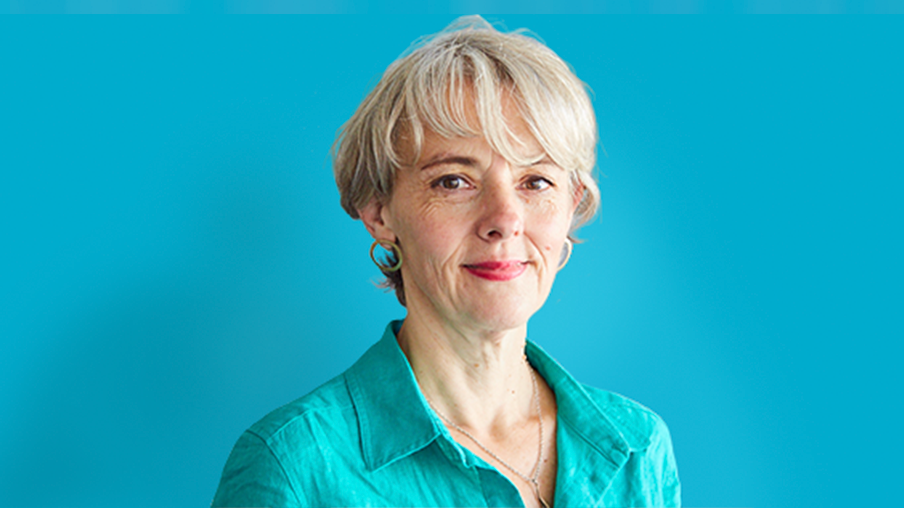In living memory, humans have doubled their life span. It’s an astonishing achievement and one I believe we have not yet fully understood. Within a decade, 20% of Britain will be over 65 and there are enormous implications for education, work, finance, families, housing, and health.
Since founding Now Teach in 2017 I’ve been thinking about and seeing good things that happen when people of different ages get together. These are the social and personal benefits of intergenerational relationships, especially in schools.
A society separated by age
Taking a big-picture view, I’m struck by how age-segregated society is becoming. In the West, we manage our education, work, and social lives in increasingly institutionalised ways. This has created ‘generational silos’, or what the Norwegian sociologist GO Hagestad calls “vertically deprived” communities.
If most of our friends are the same age as us, is it any wonder that ageism is a growing problem? Living in any bubble, be it ethnicity, politics, class, or religion, tends to limit our ability to empathise with others outside our bubble and increases the propensity to stereotype or dismiss.
The age bubble is no different and it’s a sad irony that as we all live longer we are also becoming an increasingly ageist society.
Such segregation eventually results in differently-aged people being boiled down to labels (Woke Gen Z! OK Boomer!), reducing the social connection we feel towards each other. It happens in a million ways and is just one of the reasons that a commitment to diversity in every shape and form is a social imperative.
Ageism hurts
Ageism strikes me as a uniquely weird ‘ism’ because as we grow older we internalise it and the ultimate victims are our future selves. ‘Silly old granny’, my mum will say to my children. ‘I’m too old to learn to skate’, a school gate friend told me.
There is one particular result of ageism that really stands out for me: the link between ageism and a shorter, less healthy life. One study found people with a positive attitude to ageing lived seven and a half years longer than those who thought about ageing negatively.
Ageism subtly weaves its way through our lives, with ageist children becoming ageist adults, leading to older people who hold deeply negative and self-limiting views about themselves. We need to give children a diverse mix of inspiring, active, and ambitious role models including those of people in their 50s and beyond.
Role models of all ages
One way this can happen is by making sure that teachers are included in those older role models. There are of course teachers of all ages – but international surveys found that England has the fifth-youngest teacher population in the OECD.
Now Teach is contributing to the increase of age diversity in schools – the average age of our trainees is 48, 50-59 years old is our biggest age group and our oldest Now Teacher is 73. I look forward to the day we celebrate our first octogenarian starting a teaching career.
Collectively Now Teachers have thousands of years of career experience and they are bringing that into schools. They are redistributing the wealth of their insight and expertise to the next generation so that age is not a barrier but a bridge, and where the older generation gives back for the benefit of the young, rather than retiring.
It’s not just students benefiting from older teachers; Now Teacher trainees are there to learn how to teach but they also share their own life experiences with their younger colleagues. Workplace relationships are rarely just about work – I’m sure we’ve all benefitted from the wisdom of an older colleague in ways that didn’t solely align with our performance objectives.
There’s a richness in learning and working alongside individuals who've weathered life's storms, offering guidance on everything from mortgages to career advancement.
A new narrative about ageing
We need a shift in perception—a departure from labeling individuals solely based on age. It’s about valuing the wisdom and experience that come with getting older, and understanding that it’s not all about decline but about evolution.
I find myself reflecting on stories of individuals who, well into their later years, remained active, instilling a belief in continuous growth and transformation. Working with Now Teachers gives me a regular dose of optimism and hope for my own future; reinvention and reimagination of our futures is not just possible at any age, it is imperative to stay engaged and fully alive in the world.
There are personal benefits to remaining active and engaged – yet it is for schools and students that Now Teach exists. Collectively Now Teachers have thousands of years of career experience and they are bringing that into schools, redistributing their insight and expertise to the next generation so that age is not a barrier but a bridge.
Yet, despite our best intentions, subtle ageism persists, weaving itself into our subconscious behaviours, and presenting a challenge. How do we foster these connections in a society increasingly segmented, where diverse friendships seem to diminish?
Schools play a pivotal role here. They need to provide an environment where children experience a rich tapestry of relationships, engaging with individuals from different age groups. It's about embedding empathy, eradicating subtle ageism, and understanding that diversity encompasses age too.
For that to happen we need inspiring older people to show that ambition and gumption need not fade when you hit your fifties. We have these people already, a lot of them are Now Teachers, and our society and schools can always do with more.




